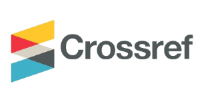Jesselton Journal of Educators and Scholars
Publication Ethics and Policy
The Jesselton Journal of Educators and Scholars (e-ISSN: 3009-0881) is committed to maintaining the highest standards of integrity, transparency, and quality in scholarly publishing. We uphold the principles of responsible research dissemination, ensuring that all published work contributes meaningfully to academic discourse and adheres to ethical best practices.
JJES operates in full accordance with the Committee on Publication Ethics (COPE) Core Practices, the Principles of Transparency and Best Practice in Scholarly Publishing, and other internationally recognized guidelines for ethical publishing. This commitment applies to every stage of our editorial and publication process. JJES implements the following policies and procedures to uphold these principles and ensure compliance with international standards of scholarly publishing:
Peer Review Process
All manuscripts submitted to JJES first undergo a preliminary editorial assessment to ensure compliance with the journal’s scope, formatting requirements, and ethical standards. Submissions that meet these criteria proceed to a rigorous double-blind peer review process, in which both author and reviewer identities are concealed to ensure impartial and unbiased evaluation.
Reviewers are selected for their subject expertise, prior scholarly contributions, and familiarity with the manuscript’s research area. All reviews are conducted confidentially, and reviewers are expected to provide constructive, evidence-based feedback within the agreed review timeline, normally within three (3) to four (4) weeks of accepting the review invitation.
JJES aims to provide authors with an initial editorial decision within eight (8) weeks of submission, though this may vary depending on the complexity of the manuscript and reviewer availability. In exceptional cases, the process may extend to a maximum of twelve (12) weeks.
Open Access Policy
The Jesselton Journal of Educators and Scholars (JJES) is a fully open access journal, making all published content freely and permanently available online without subscription or access fees. All articles are published under the Creative Commons Attribution 4.0 International License (CC BY 4.0), which permits unrestricted use, distribution, and reproduction in any medium, provided that appropriate credit is given to the original authors and to the journal as the place of first publication.
Copyright of all published articles is retained by Jesselton University College Sdn. Bhd., the publisher of JJES. By submitting a manuscript, authors grant JJES the rights to publish, distribute, archive, and license the work in all forms and media, including indexing, repository deposits, and print or digital reproductions.
JJES adopts an open access model to ensure that scholarly research is accessible to the widest possible audience, regardless of institutional or personal resources. We believe that removing access barriers promotes greater visibility, facilitates academic collaboration, and accelerates the global exchange of ideas across disciplines and regions.
Plagiarism Policy
JJES applies a strict zero-tolerance policy towards plagiarism and duplicate publication. All submitted manuscripts are screened using plagiarism detection software prior to peer review. The acceptable similarity index is generally below 15%, excluding properly cited quotations and references.
If plagiarism is detected before publication, the manuscript will be returned to the author for revision or rejected outright. If plagiarism or duplicate publication is discovered after publication, JJES will conduct a formal investigation. Confirmed cases will result in the publication of a retraction or correction notice, and the author’s affiliated institution and funding bodies may be informed. Serious breaches may lead to a ban on future submissions.
Ethics Approval
Research involving human participants must comply with the Declaration of Helsinki (World Medical Association) for ethical principles in medical research. Studies involving animals must comply with the EU Directive 2010/63/EU or equivalent national or institutional regulations on animal welfare.
For human studies, informed consent must be obtained from each participant or their legal guardian, with clear documentation retained by the author(s). This includes securing an official Ethical Declaration Form approved by the authors’ respective institutional review boards, ethics committees, or other recognized oversight bodies. For animal studies, all experimental procedures must be reviewed and approved by a qualified institutional animal ethics committee prior to commencement.
All authors must adhere to recognized ethical standards in scholarly publishing and research. Before initiating any study involving human participants, animals, or sensitive data, authors are required to obtain formal approval from the relevant institutional or university ethics committee and, where applicable, secure written authorization from their affiliated institution to conduct surveys, interviews, or other forms of data collection.
Article Processing Charge (APC)
JJES operates as an open-access journal to ensure that all published content is freely and permanently accessible to the global scholarly community. To cover the costs of editorial management, peer review, copyediting, typesetting, DOI registration, online hosting, and long-term archiving, the journal applies an Article Processing Charge (APC) of RM250 per accepted manuscript.
The APC is payable only after a manuscript has successfully passed peer review and received final acceptance. There are no submission charges or fees for rejected manuscripts.
For inquiries regarding APC payment, please contact the Managing Editor at jjesadmin@jesselton.org.
Conflict of Interest and Source of Funding
All authors are required to disclose any potential conflicts of interest that could be perceived as influencing the research outcomes or interpretations presented in their manuscript. A conflict of interest may include, but is not limited to, financial relationships, personal or professional affiliations, advisory roles, intellectual property interests, or any other circumstance that could create bias or the appearance of bias.
Full transparency in funding and conflict of interest declarations is essential to uphold the integrity of scholarly publishing and to allow readers to assess the credibility of the reported work.



